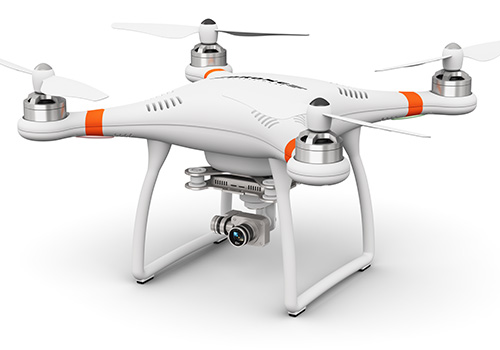A fascinating fact about drones is that the weight of their batteries significantly affects their performance. As the demand for drones continues to grow, understanding how battery weight influences various aspects of flight becomes crucial. This blog will explore how battery weight impacts drone performance and the lifespan of rechargeable batteries used in drones.

The Importance of Battery Weight in Drones
Battery weight is one of the most critical factors in drone design. Drones rely on batteries for power, and the weight of these batteries can determine how well the drone performs. Heavier batteries may provide more energy, but they can also make the drone less agile and harder to control. Conversely, lighter batteries can improve maneuverability but may have less capacity. Finding the right balance is essential for optimal drone performance.
How Weight Affects Flight Time
One of the primary concerns with drone batteries is flight time. Flight time refers to how long a drone can stay in the air before needing to recharge. Heavier batteries can provide more energy, which might seem beneficial. However, the additional weight can also reduce flight time. The drone’s motors have to work harder to lift the extra weight, leading to quicker energy consumption.
A lighter battery, on the other hand, allows for longer flight times. This is because the motors do not have to exert as much effort to keep the drone airborne. Therefore, optimizing battery weight is essential for maximizing flight time, which is critical for both recreational and commercial drone users.
Impact on Maneuverability
Maneuverability is another key aspect of drone performance that is affected by battery weight. Drones are often required to perform quick turns and changes in direction. When a drone carries a heavy battery, it becomes less agile. The additional weight makes it slower to respond to pilot commands, which can be a significant drawback in situations requiring precision flying.
On the contrary, a drone equipped with a lightweight battery can maneuver more effectively. It can change directions quickly and perform complex aerial tricks with ease. This agility is especially important for racing drones, which rely on quick movements to win races. Therefore, battery weight is crucial for enhancing maneuverability and overall flight experience.
Effects on Payload Capacity
Drones are often used for carrying payloads, whether that be cameras, sensors, or other equipment. The weight of the battery directly affects how much additional weight a drone can carry. A heavy battery will limit the payload capacity. This means that less equipment can be attached without risking the drone’s ability to fly.
In commercial applications, this limitation can reduce the efficiency of drone operations. For example, delivery drones need to carry packages while maintaining flight stability. If the battery is too heavy, it may not be able to transport the intended payload. Thus, optimizing battery weight is essential to improve the overall capabilities of drones in various industries.
Battery Lifespan Considerations
When discussing the lifespan of rechargeable batteries, weight plays a role as well. Heavier batteries may have more energy but can also experience faster wear and tear. The increased load on the battery can lead to quicker degradation over time. This affects how long the battery can hold a charge and its overall life span.
Conversely, lighter batteries may face less strain during flight. This reduced stress can contribute to a longer lifespan. Therefore, selecting a battery with the right weight is crucial not only for performance but also for longevity. It is important to consider how the battery will perform over time and how it can be maintained for optimal use.
Choosing the Right Battery
Selecting the appropriate battery is vital for achieving the best drone performance. Various factors should be considered, including weight, capacity, and intended use. For recreational users, lighter batteries may suffice. However, commercial users may require batteries with a higher capacity, even if that means sacrificing some weight.
Understanding the specifications of different drones batteries can help users make informed choices. Manufacturers often provide guidelines on the recommended battery types for specific drone models. It is essential to follow these guidelines to ensure safety and optimal performance.
In summary
Battery weight has a significant impact on drone performance. It affects flight time, maneuverability, and payload capacity. Additionally, the weight of batteries plays a role in their lifespan, influencing how long they will last before needing replacement. Drones rely on batteries for power, and the weight of these batteries can determine how well the drone performs. Heavier batteries may provide more energy, but they can also make the drone less agile and harder to control.
Choosing the right battery is essential for maximizing drone efficiency and capabilities. With ongoing innovations in battery technology, the future looks promising. Lighter, more durable batteries can enhance drone performance and ensure longer, more enjoyable flights for users. Understanding these factors will help both recreational and commercial drone users make informed decisions about their equipment, leading to better performance and greater satisfaction.



